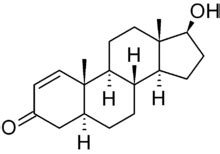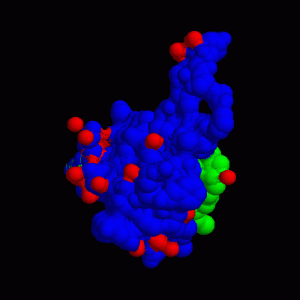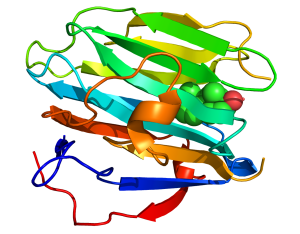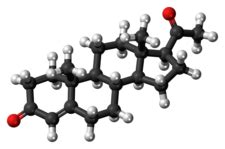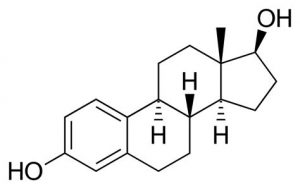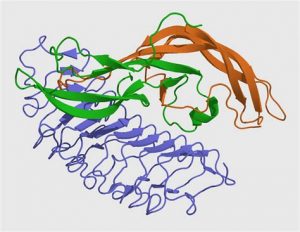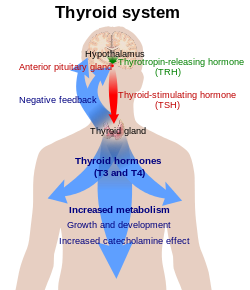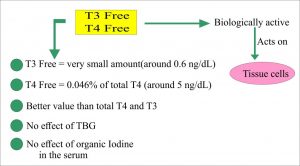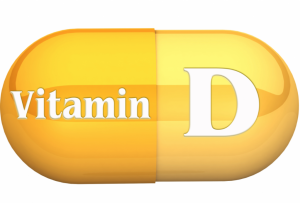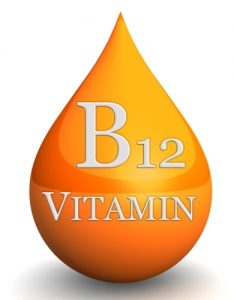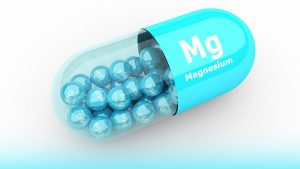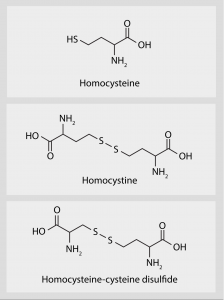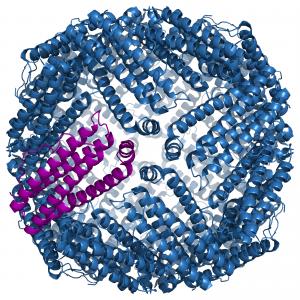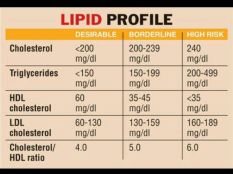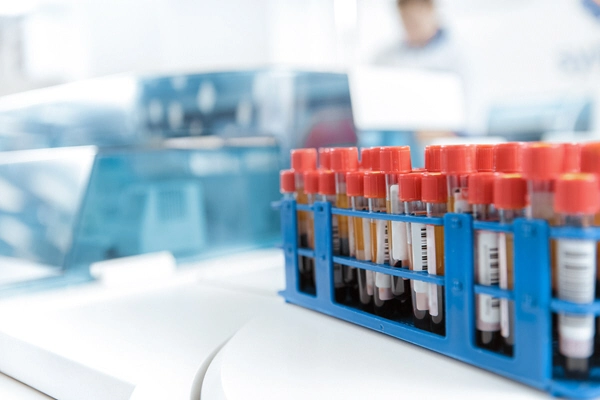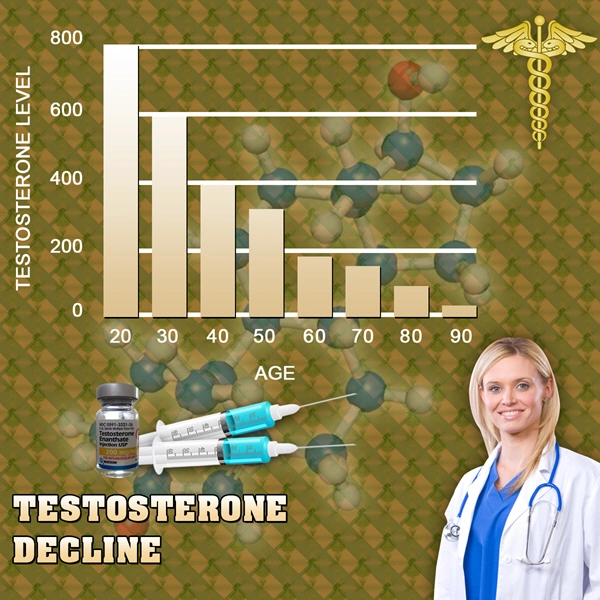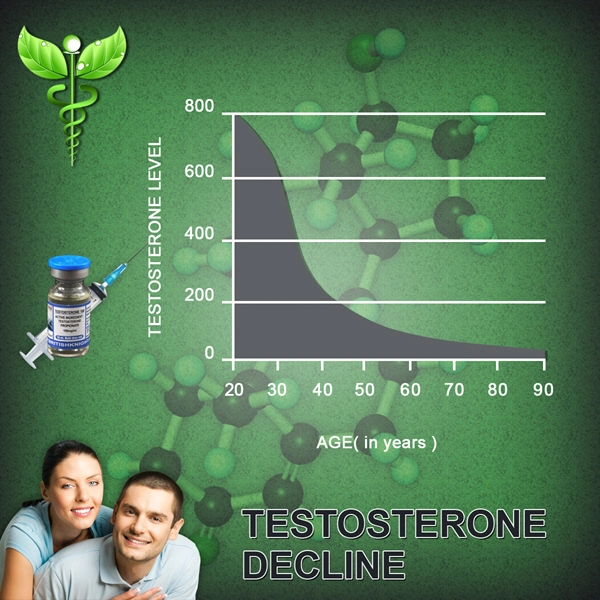Reading Time: 13 minutes
Before you start a hormone replacement therapy program with HGH, Testosterone, Sermorelin, or other medications, you need to get a blood test to determine exactly what kind of optimal doses you would benefit from under physician supervision.
Before we break down the reasons behind getting a legitimate COMPLETE blood work panel and analysis, let us start with the three things that define aging and how they relate to the following information.
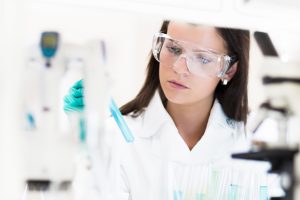 Memory, vision, and physical movement capacity all decline with aging. These are some of the most notable signs of aging an individual experiences, but of course, there are many other factors too.
Memory, vision, and physical movement capacity all decline with aging. These are some of the most notable signs of aging an individual experiences, but of course, there are many other factors too. To maintain the proper and optimal function of these aging-related factors and others too many to name, hormone replacement therapy (HRT) is an essential tool you can use to age gracefully.
However, hormone replacement therapy should never be considered without a complete understanding of how all the body’s hormones interact in their unique paths.
If one hormone is altered or deficient in your body, it will affect the actions of one, some, or all of the other hormones in your body (depending) and has the potential to cause a "cascade effect."
The hormonal response of an individual is as unique as their fingerprints. How one responds to therapy is related to the condition of one’s health, genetic profile, stress level, nutritional supplementation, detoxification efforts, lifestyle, and most importantly, what you eat.
Nevertheless, there are no cookie-cutter approaches to Hormone optimization therapy (HOT); we hope that you could agree that one size does not fit all, and that's why it's so crucial we customize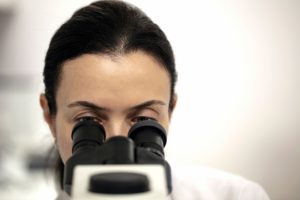 each treatment for each patient with a proper blood work analysis is the foundation to starting things right.
each treatment for each patient with a proper blood work analysis is the foundation to starting things right. So, before starting you on a hormonal replacement treatment, or if you are already on therapy, and your doctor is not ordering all of these following tests panels found below, we would ask you to think twice, at least reconsider his overall expertise in the field of regenerative and functional medicine and get a second opinion with us (with no obligations).
In fact, no matter who your doctor happens to be, you should always get second opinions.
We try to under-promise and over-deliver. Once you read what each of these hormones' job plays in your body, you will understand why a blood work panel and analysis like this are absolutely invaluable to your well-being. You will no longer have any doubts about its importance to understanding them fully.
We want to prove to you that this by far the most comprehensive blood test you can order (for hormone replacement therapy) and how we are honestly watching out for our patients' best interest.
As we know, most of us are on a busy schedule, so we made the information as simple, accurate, and easy as possible for you to read and understand.
Let's start with your hormones.
A hormone is a chemical communicator the body produces to control and regulate your cells and organs' activity. Hormones play a critical part in every bodily function like growth, bone density, digestion, metabolism, reproduction, sex drive, and mood. Think of them as “messenger molecules” that give your cells and organs instructions.
For example, insulin is a hormone that causes cells to absorb glucose, and glucagon helps burn the sugar out of the fat cell. The luteinizing hormone helps produce more natural testosterone and sperm count. The point is your hormones are designed to work together, and not testing for all of them would be irresponsible of the prescribing physician, unless he is not qualified enough to be prescribing hormones.
Here you have it. Let your common sense decide if these panels are of any importance for your HRT therapy.
A complete hormonal test would include the following.
Total Testosterone - This test measures testosterone bound to proteins in the blood (albumin and sex-hormone binding globulin [SHBG]). It is not a good marker to identify if the patient is suffering from all the low T symptoms, but we still check for it to give us a broad understanding of the patients' specific hormone deficiency.
Free Testosterone - This test measures the testosterone that is not attached to proteins and is free to be used by the body. This panel is really what provides the benefits of boosting your testosterone serum and the patient's overall vitality.
IGF-1 - This test measure Insulin-like growth factor 1 (IGF-1), also called somatomedin C. IGF-1 controls the reproduction and development of every cellular function in the human body, making it invaluable for our health as we age. It is known as the "fountain of youth" or "master" hormone. It's a good indicator if your HGH levels are low, normal, or high.
Low levels of IGF-1 causes symptoms like saggy skin, poor muscle tonality, decreased bone density, fatigue, poor memory, diminished quality of sleep, reduced exercise tolerance, increase in body fat, especially around the midsection, and poor wound healing.
Sex Hormone Binding Globulin (SHBG) - This test measures the amount of testosterone that your body's tissues can utilize.
SHBG binds tightly to two sex hormones found in men like dihydrotestosterone (DHT) and testosterone. A high SHBG level means that less free testosterone is available to the tissues than is indicated by the total testosterone test. A low SHBG means that more of the total testosterone is bioavailable and not bound to SHBG. The level of SHBG in your blood changes because of factors such as sex and age. It can also change because of obesity, liver disease, and hyperthyroidism.
Cortisol - One of the most important reasons for performing a cortisol test is its effect on increasing SHBG, which we already mentioned above, how horrible it is for your testosterone. Cortisol increases your body fat and decreases your ability to lose weight. Other problems associated with chronically elevated cortisol levels include reduced libido, suppressed immunity, hypertension, high blood sugar (hyperglycemia), insulin resistance, carbohydrate cravings, metabolic syndrome, type 2 diabetes, and fat deposits on the face, neck, and belly.

Dihydrotestosterone (DHT) - It is a sex hormone created from testosterone in the body. It plays a major role in developing characteristics associated with men, like body hair, muscle growth, and a deep voice. DHT is critical to the development and health of the penis and prostate in men. When testosterone levels increase, more of it is converted to dihydrotestosterone, and so levels of the dihydrotestosterone also increase as a result. Too much DHT plays a role in the development of prostate cancer and hair loss.

DHEA Sulfate (stands for dehydroepiandrosterone) - This test is used to check how well your adrenal glands are working. DHEA is a hormone made by your adrenal glands and to a lesser degree by the testes. In men, DHEA serves as the steroidogenic metabolic intermediate informing the sex hormones from progesterone to testosterone and estrogen. Optimizing DHEA facilitates the conversion of more free testosterone, lowers inflammation, improves libido, bone density, muscle mass, protects against depression, cognitive decline, mood swings, and aids in weight loss.
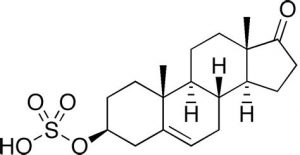
Progesterone - This hormone has long been known as a "female hormone" since it plays a significant role in ovulation, fertility, and pregnancy. But for men, progesterone helps counteract the effects of estrogen in the male body, which causes weight gain and gynecomastia, also known as "man boobs." Not only is progesterone found in males, but men rely on the so-called "female hormone" to preserve masculinity. The fact is, progesterone is a precursor to testosterone, "the male sex hormone," and is beneficial to your libido, sleep, hair follicle health, and fertility.
Estradiol - Estrogen in men plays a major role. As men age, testosterone levels decrease while estrogen levels increase. In the medical field, we call this "male andropause," "andropause," or "manopause." Testosterone treatment causes aromatization, which is the process by which the body converts testosterone into estrogen.
So, having too much estrogen causes rapid cell division. If you have a poorly developed cell like a "cancerous cell," you would be more susceptible to prostate and testicular cancer. Now, too little estrogen will kill your libido and make you more vulnerable to osteoporosis because estrogen blocks something called osteoclast, a type of bone cell that breaks down bone tissue. Women are more prone to bone fracturing and osteoporosis than men.
Follicle Stimulating hormone & Luteinizing hormone (FSH & LH ) - This test measures the feedback between the brain and the testicles. It enables the testicles to accomplish their two primary jobs, which are producing sperm and testosterone. It is also used to see if the patient has fertility issues and/or poor feedback to the testicles for producing natural testosterone. FSH acts on the Sertoli cells of the testes to stimulate sperm production (spermatogenesis). LH stimulates natural testosterone production, which also plays a role in sperm production, and it acts synergistically with FSH.
PSA - Conditions that could lead to an elevated PSA level in men who don't have prostate cancer include: Benign prostate enlargement (benign prostatic hyperplasia), a prostate infection (prostatitis), or other less common conditions.
A complete thyroid test would include the following.
Whether there are high, average, or low thyroid hormone levels (hyperthyroidism, Hashimoto's, euthyroid, hypothyroidism), most patients complain of hypothyroidism-like symptoms than any other type of thyroid problems. Hypothyroidism is commonly under-diagnosed and under-treated because conventional physicians believe that these patients are healthy as long as their hormone levels (specifically thyroid-stimulating hormone "TSH") are just within the so-called “conventional” boundaries of laboratory reference ranges.
For reason, our functional and integrative medicine/medical physicians think otherwise because they don’t want patients' levels to be “within the reference ranges”; they want their hormone levels to be optimal. Also, it is merely impossible to make an accurate diagnosis or prognosis on a patient just obtaining TSH values.
To have a solid overview of a patient's thyroid function, the physician must test for thyroid-stimulating hormone "TSH," Free T3, Free T4, thyroid peroxidase, and thyroid antibodies (optional reverse T3). They are all interrelated and provide a definitive look at what is going on with the patient's current thyroid health status.
TSH - This test is performed to determine the underlying cause of abnormal thyroid hormone levels to screen for an under-active or over-active thyroid gland. By measuring the level of TSH in the blood, we can determine how well the thyroid works.
Free T3 - A free triiodothyronine (free T3) test is used to assess thyroid function. T3 is the active form of thyroid hormone in that it influences many body processes, particularly the regulation of your metabolism.
Free T4 - A Free thyroxine (free T4) tests are used to help evaluate thyroid function and diagnose thyroid diseases, including hyperthyroidism (up-regulation) and hypothyroidism (down-regulation), usually after discovering that the thyroid-stimulating hormone (TSH) level is abnormal. It also gives us a complete understanding of what is going on with your thyroid.
Thyroid Antibodies (TPO) - This test is for autoimmune thyroid disease; it can be detected in Graves disease or Hashimoto thyroiditis. In autoimmune disorders, your immune system makes antibodies that mistakenly attack normal tissue.
Thyroid Peroxidase AB - Thyroid peroxidase is a test that measures the level of an antibody that is directed against thyroid peroxidase (TPO). Autoantibodies to thyroid peroxidase (TPOAb) are produced within the body. The presence of TPOAb in the blood reflects a prior attack on the thyroid tissue by the body's immune system.
Next are micronutrients like vitamins and minerals, why and what you need to know about them, and how they go "hand in hand" with "HRT" therapy.
Most people underestimate the power of vitamins and minerals. You need to understand micronutrients that they lubricate all the biochemical wheels of life, and without them, you would die! Nutrients can become biological response modifiers as they change and adapt to how the body is currently working and feels.
When you are deficient in them, the body slows down in every shape and form. One of the anticipated consequences of nutritional deficiencies is weight gain and disease susceptibility

To name a few examples, deficiencies of key nutrients like B vitamins and magnesium causes fatigue, which impedes caloric expenditure. A low level of CoQ10 slows mitochondrial activity; low levels of vitamin D are linked to obesity, insulin resistance worsens with low Omega 3 fatty acids, magnesium, and chromium.
These are just a few examples, but hopefully, you get the point. Here are the vitamins and minerals we look for.
. This is to name a few, but we hope you get the point by now. Here are the vitamins and minerals we look for.
Vitamin D, 25-Hydroxy - Vitamin D is a nutrient essential for maintaining healthy teeth, bones, and neuromuscular function as we age. Optimizing your Vitamin D3 helps lower SHBG, promoting more free testosterone (the beneficial testosterone). Low vitamin D levels have been shown to cause suppressed immunity, increased risk of chronic diseases like heart disease, and several kinds of cancer. Vitamin D also regulates inflammation throughout the body, which is extremely important because it is believed a high percentage % of diseases are inflammation-based in the first place.
Vitamin B12 -This vitamin test is essential to identify the normal formation of red blood cells and your nerve tissues' health. B12 acts as a co-factor to produce energy and dopamine - a neurotransmitter that plays a major role in reward-motivated behavior. Also, it helps produce cellular energy, DNA/RNA, maintain healthy vision and many other health benefits.
Undetected and untreated vitamin B12 deficiency can lead to permanent nerve and brain damage. Homocysteine levels tend to be elevated in vitamin B12 deficiency patients. Never supplement with cyanocobalamin B12 because too much of it can suffocate your brain. The most active co-active enzyme form of B12 is methylcobalamin and is the recommended form you should be taking.
Magnesium - Is a cofactor in more than 300 enzyme systems that regulate diverse biochemical reactions in your body, including protein synthesis, muscle and nerve function, blood glucose control, and blood pressure regulation. Furthermore, it’s required for energy production, muscle contraction, blood coagulation, nutrient metabolism, especially carbohydrate and bone cell formation.
A complete diabetes test would include the following.
Hemoglobin A1C - This test provides information about a person's average blood glucose levels (sugar) over the past three months. For people without diabetes, the normal range for the hemoglobin A1c level is between 4% and 5.6%. Hemoglobin A1c levels between 5.7% and 6.4% mean you have a higher chance of getting diabetes. Concentrations of 6.5% or higher mean you have diabetes. The good news for you is that we have an excellent protocol that can mitigate, and in some cases, completely reverse diabetes (for those that suffer from it).
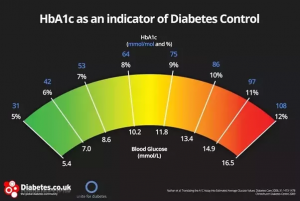
Insulin - Insulin testing has several important uses. Insulin is the body's primary energy source, and it helps transport sugar (glucose) from the blood to within cells. The higher your insulin levels are, the more likely you are insulin resistant. If so, your body starts to age and deteriorate faster than average. Insulin resistance is the single most important phenomenon that leads to rapid premature aging and leads to diseases, including heart disease, stroke, dementia, and cancer. Insulin resistance and the resulting metabolic syndrome often come accompanied by increasing central obesity, fatigue after meals, sugar cravings, high triglycerides, low HDL, high blood pressure, problems with blood clotting, and increased inflammation. Doctors rarely order it, and they usually don't express concern until blood sugar (glucose) is over 110 or worse, over 120, which is diabetes. Glucose is another test indicator we look for and falls under the CMP panel.
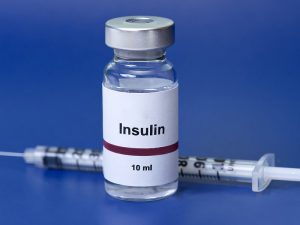
Other indicators of disease we look for are not necessarily tied in closely with hormone replacement therapy (HRT).
Homocysteine - High levels or abnormal accumulation of homocysteine are linked to the early development of heart disease, MTHFR, and age-related brain shrinkage. It's also associated with low levels of vitamins B6, B12, and folate. The good news is that we can treat these abnormal levels with our proper treatment protocols.
C-Reactive Protein (CRP) - This is a blood test marker for inflammation in the body. High CRP levels can indicate that there's inflammation in the heart's arteries, which can mean a higher risk for a heart attack. Besides, a high level of CRP can be caused by a wide variety of conditions, from infection to cancer.
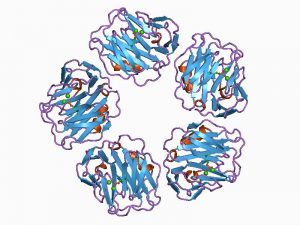
Ferritin - A ferritin test helps your doctor understand how much iron your body is storing. If your ferritin level is lower than normal, it's an iron deficiency indicator, which causes anemia (a reduction in the number of red blood cells). If you have cancer, kidney failure, or other chronic conditions, you may be at risk of anemia or other related chronic diseases. These conditions can lead to a shortage of red blood cells. Also, slow chronic blood loss from an ulcer or other sources within your body can deplete your body's store of iron, leading to iron deficiency "anemia." High levels of ferritin can indicate an iron storage disorder, such as hemochromatosis, or a chronic disease process, which is very rare to find in a patient's blood work result.
Here is the typical blood work ordered in conventional medicine and that a general physician will assess a patient's overall health.
Now, after everything you just read, If you really want to check your overall wellness status legitimately, do you think that to only checking for CBC, CMP, and lipid panel alone is going to tell you a whole lot about your health?
At this point, we can agree that it would be ridiculous to consider and what we really want is the bigger picture. However, these following panels provide some valuable but limited information about a patient's current health status, just not merely enough to make a full assessment of a patient's complete wellness status. Part of our blood work test includes these "traditional blood panels" as well.
Complete Metabolic Panel (CMP) - measures 14 different test panels that give our doctor valuable information about the current status of a person's metabolism, including the health of the kidneys and liver, electrolyte and acid/base balance, as well as blood glucose. Glucose is a type of sugar your body uses for energy, and electrolytes keep your body's fluids in balance.
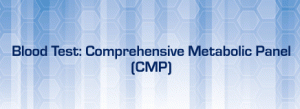
Complete blood count with differential (CBC W/Diff) - This test measures red blood cells, white blood cells, platelet levels, hemoglobin, and hematocrit count in the blood, screening for anemia or detection of infections. This test is vital for patients who are administering testosterone replacement therapy themselves because long-term overuse of testosterone causes polycythemia, an abnormally increased concentration in red blood cells, and causes your blood to thicken. That makes you more likely to develop blood clots, stroke, or suffer from a heart attack. However, this could be avoided by routinely donating blood every 3 to 6 months, depending on the patients' blood work results.
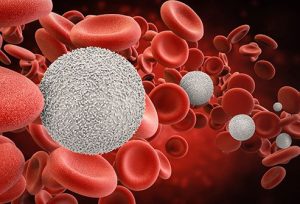
Lipid Panel - This test measures the amount of cholesterol and triglycerides in your blood. High cholesterol levels usually don't cause any signs or symptoms; nevertheless, high cholesterol levels could obstruct blood flow through the arteries, increase cardiovascular disease and stroke risks. Lipids include cholesterol, high-density lipoprotein (HDL), low-density lipoprotein (LDL), and triglycerides. A lipid test is a valuable test to determine a partial section of the patients' health.
Reference:
Blood Tests Needed Before Starting Hormone Treatments
Related Posts- Hormone Therapy After a Hysterectomy: Human Growth Hormone [Last Updated On: November 5th, 2024] [Originally Added On: November 13th, 2020]
- How the Liver Influences Weight Gain and Affects Hormone Balance [Last Updated On: February 6th, 2025] [Originally Added On: January 16th, 2021]
- HGH and Bodybuilding [Last Updated On: February 5th, 2025] [Originally Added On: January 20th, 2021]
- Ten HGH Frequently Asked Questions [Last Updated On: February 6th, 2025] [Originally Added On: January 29th, 2021]
- Why You Need HGH -- Six Key Reasons [Last Updated On: February 5th, 2025] [Originally Added On: February 9th, 2021]
- Mark Cuban: The HGH Revolution is Underway [Last Updated On: February 4th, 2025] [Originally Added On: February 10th, 2021]
- Why Are So Many Celebrities Taking HGH? Do They Need It? [Last Updated On: November 20th, 2024] [Originally Added On: February 14th, 2021]
- Fitness and Beauty: The Two Go Hand-in-Hand [Last Updated On: December 29th, 2024] [Originally Added On: February 22nd, 2021]
- COVID-19 Global Pandemic: Boosting Your Immune Defense with Growth Hormone [Last Updated On: December 31st, 2024] [Originally Added On: February 24th, 2021]
- Growth Hormone Leads to Liver Regeneration and helps support healing post surgery. [Last Updated On: January 7th, 2025] [Originally Added On: March 5th, 2021]
- HGH Injections May Improve ACL Surgery Outcomes [Last Updated On: February 4th, 2025] [Originally Added On: March 7th, 2021]
- Five Simple Ways to Naturally Increase HGH Levels [Last Updated On: November 14th, 2024] [Originally Added On: March 9th, 2021]
- Buying HGH Scams Versus Buying Real Injectable HGH [Last Updated On: February 19th, 2025] [Originally Added On: April 26th, 2021]
- How Growth Hormone (HGH) and Leptin Affect Weight Loss and Dieting [Last Updated On: February 3rd, 2025] [Originally Added On: April 30th, 2021]
- How Human Growth Hormone Supports Beauty and Youthfulness [Last Updated On: February 3rd, 2025] [Originally Added On: May 7th, 2021]
- HGH and Testosterone Comprehensive Hormone Therapy [Last Updated On: February 2nd, 2025] [Originally Added On: May 12th, 2021]
- Growth Hormone Deficiency, the Immune System and COVID-19 [Last Updated On: January 7th, 2025] [Originally Added On: May 22nd, 2021]
- It’s Not Just Anecdotal: Science Says Growth Hormone Creates Faster and Leaner Athletes [Last Updated On: November 3rd, 2024] [Originally Added On: June 18th, 2021]
- Women: 15 Warning Signs Your HGH Might Be Low [Last Updated On: November 4th, 2024] [Originally Added On: August 19th, 2021]
- HGH Doctors [Last Updated On: February 2nd, 2025] [Originally Added On: September 17th, 2021]
- Beware the HGH Ripoff Artists [Last Updated On: November 2nd, 2024] [Originally Added On: September 27th, 2021]
- HGH and Fertility in Women [Last Updated On: March 24th, 2025] [Originally Added On: October 7th, 2021]
- Human Growth Hormone Is Something You Absolutely Need [Last Updated On: November 1st, 2024] [Originally Added On: October 20th, 2021]
- Focus on These Five Workouts to Naturally Boost Both HGH and Testosterone [Last Updated On: April 6th, 2025] [Originally Added On: March 16th, 2022]
- We Were Ripped Off – Twice! – by HGH Scammers [Last Updated On: April 13th, 2025] [Originally Added On: June 9th, 2022]
- Which is Better? Suffering or Balancing Your Hormones for True Vitality? [Last Updated On: October 17th, 2024] [Originally Added On: September 7th, 2022]
- Tennis Game Over? Not at All! [Last Updated On: March 20th, 2025] [Originally Added On: January 18th, 2023]
- HGH and Sexual Relationships [Last Updated On: February 18th, 2025] [Originally Added On: February 1st, 2023]
- Danger: Masculinizing Effects in Women – and Feminizing Effects in Men – Can Happen if You Use Questionable HRT Sources [Last Updated On: October 31st, 2024] [Originally Added On: February 10th, 2023]
- “If You’re Not Horny, You’re Not Healthy.” [Last Updated On: March 18th, 2025] [Originally Added On: March 1st, 2023]
- An Actor’s Story – HGH Testimonial [Last Updated On: February 20th, 2025] [Originally Added On: April 6th, 2023]
- The Science behind Norditropin: How It Stimulates Growth [Last Updated On: December 27th, 2024] [Originally Added On: November 23rd, 2023]
- An Intriguing Journey: An Actor’s Experience with HGH Deficiency [Last Updated On: February 8th, 2025] [Originally Added On: February 8th, 2025]
List of USA state clinics - click a flag below for blood testing clinics.
Word Count: 3229
 Memory, vision, and physical movement capacity all decline with aging. These are some of the most notable signs of aging an individual experiences, but of course, there are many other factors too.
Memory, vision, and physical movement capacity all decline with aging. These are some of the most notable signs of aging an individual experiences, but of course, there are many other factors too.  each treatment for each patient with a proper blood work analysis is the foundation to starting things right.
each treatment for each patient with a proper blood work analysis is the foundation to starting things right. 
